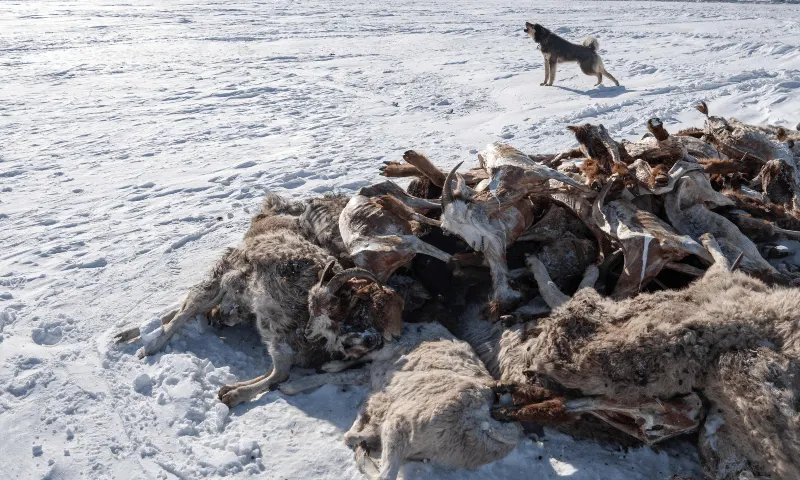More than two million animals have died in Mongolia so far this winter, a government official said on Tuesday, as the country endures extreme cold and snow.
The landlocked country is no stranger to severe weather from December to March, when temperatures plummet as low as minus 50 degrees Celsius (minus 58 Fahrenheit) in some areas.
But this winter has been more severe than usual, with lower than normal temperatures and very heavy snowfall, the United Nations said in a recent report.
As of Monday, 2.1 million head of livestock had died from starvation and exhaustion, Gantulga Batsaikhan of the country’s agriculture ministry said. Mongolia had 64.7m such animals, including sheep, goats, horses and cows, at the end of 2023, official statistics show.
The extreme weather is known as “dzud” and typically results in the deaths of huge numbers of livestock. The United Nations said climate change is increasing the frequency and intensity of dzuds.
Mongolia has experienced six dzuds in the past decade, including the winter of 2022-23 when 4.4m head of livestock perished. This year’s dzud has been exacerbated by a summer drought that prevented animals from building up enough fatty stores to survive the harsh winter.
“The winter started with heavy snow but suddenly air temperatures rose, and the snow melted,” herder Byambaa said. “Then the temperatures dropped again, turning the melting snow into ice.”—AFP










